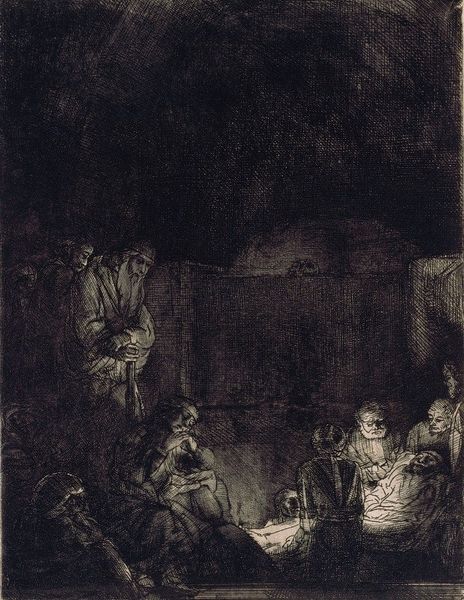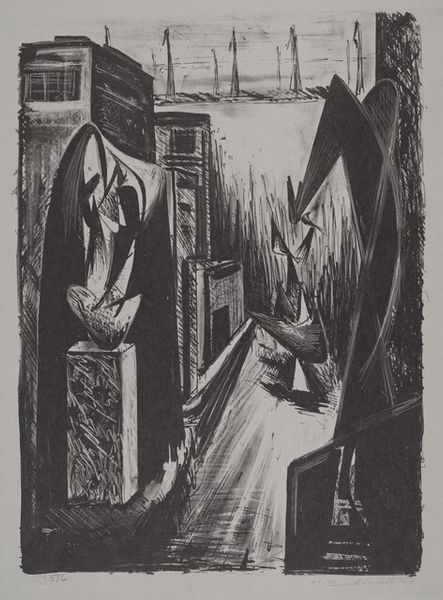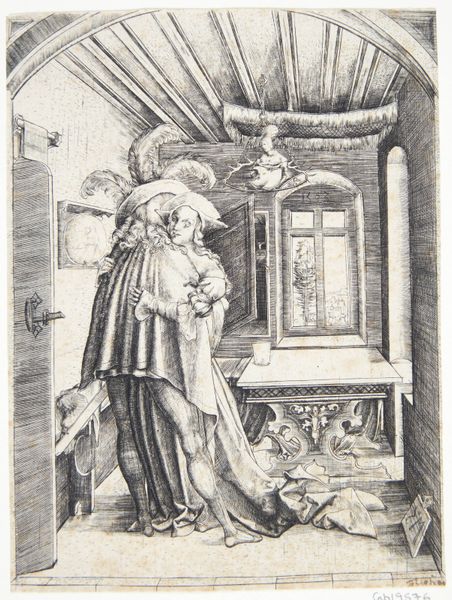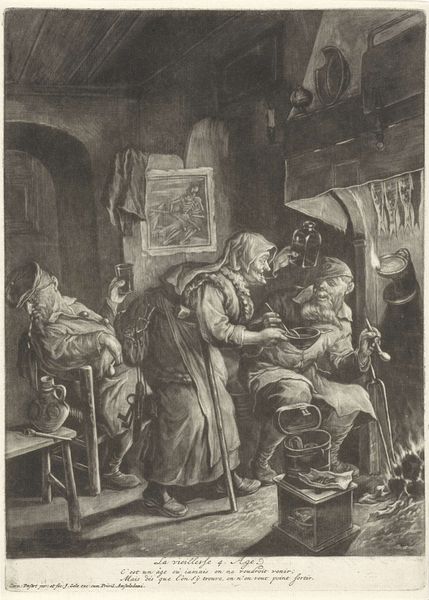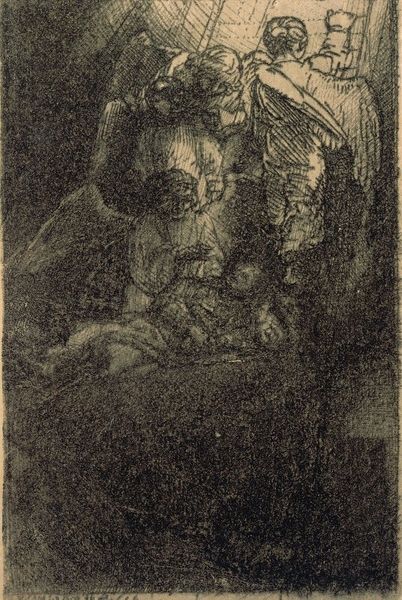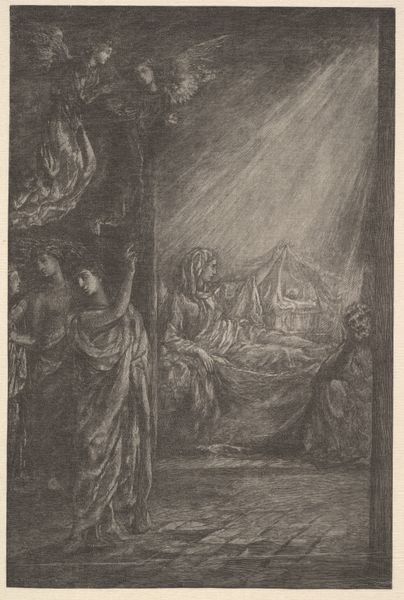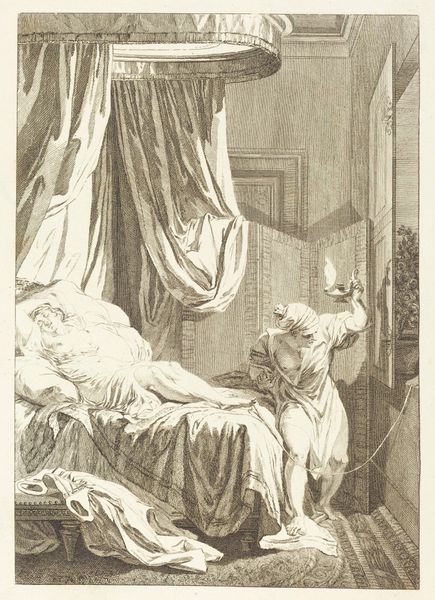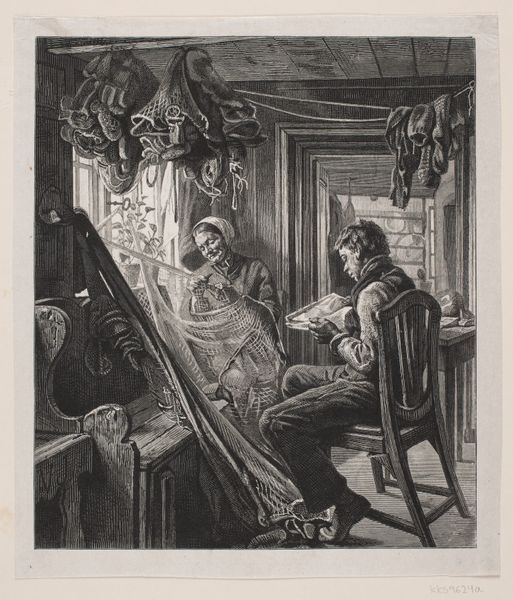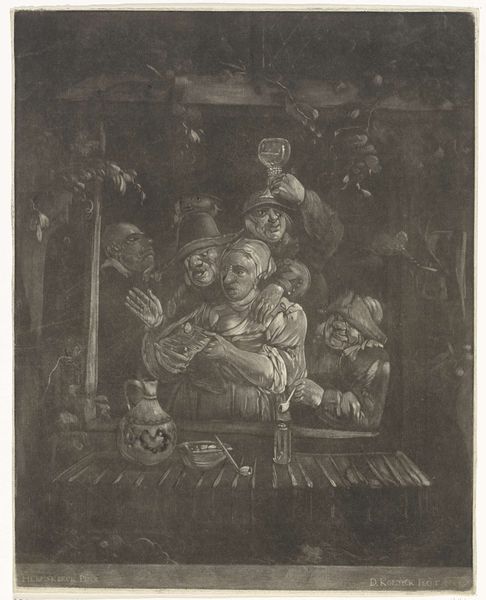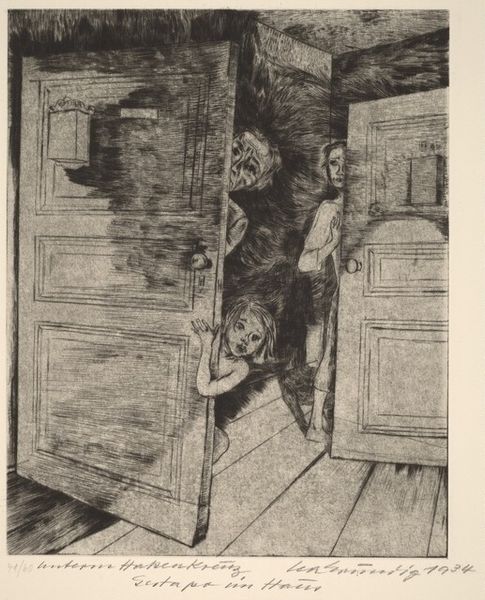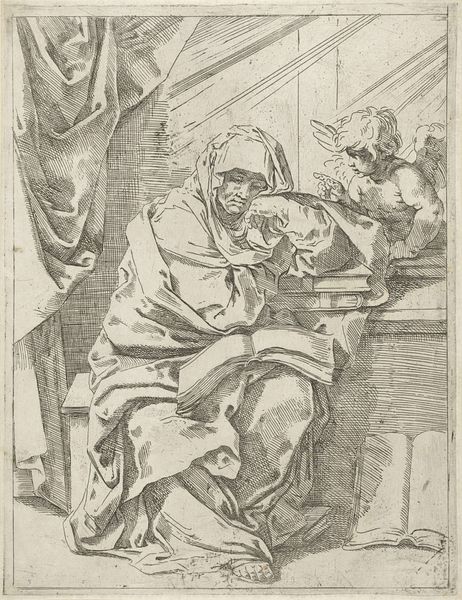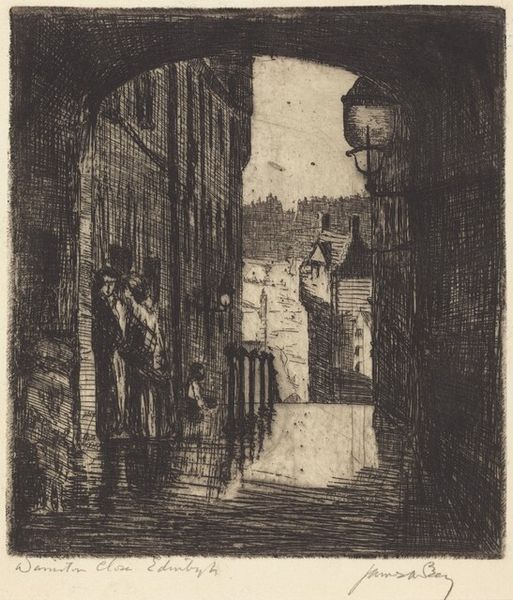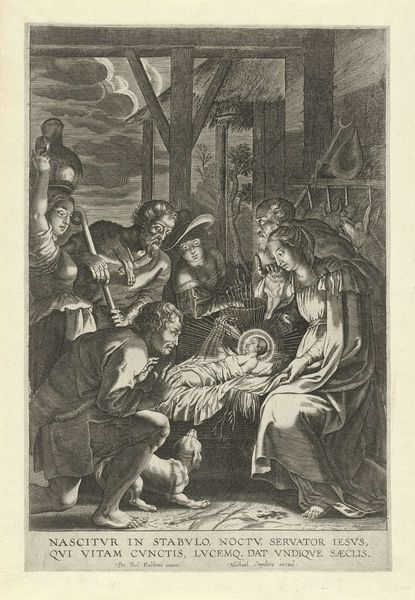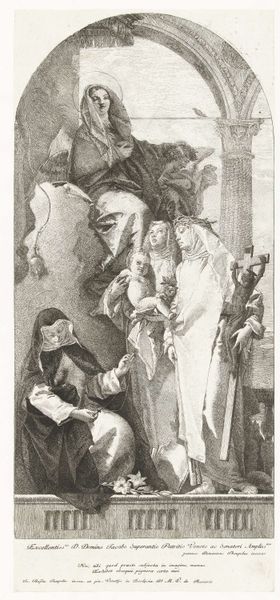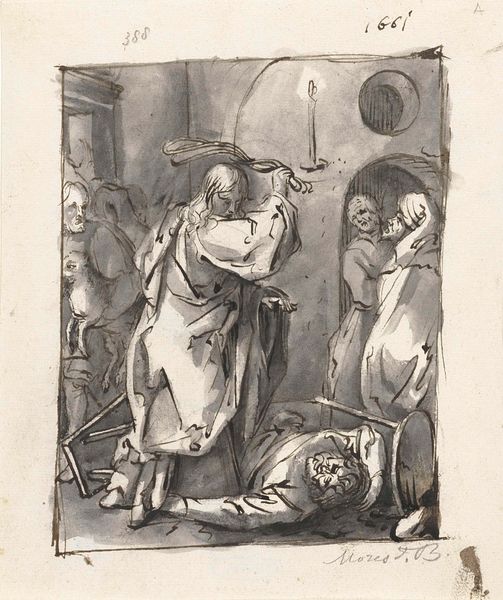
Dimensions: support: 857 x 719 mm frame: 1023 x 902 x 130 mm
Copyright: CC-BY-NC-ND 4.0 DEED, Photo: Tate
Editor: Here we have James Pryde's painting, *The Doctor*, currently housed in the Tate. It has such a somber, almost theatrical quality to it. What do you make of the composition? Curator: Note the contrast between the areas of heavy impasto and the thinly veiled dark passages, creating a chiaroscuro effect that heightens the drama. How do the strong verticals and horizontals structure the space? Editor: I see how the lines of the doorway and bed frame divide the painting into distinct zones. Is this contrast meant to guide our eyes? Curator: Precisely. Pryde directs our gaze through the painting using light and shadow, creating a visual pathway through the scene. The tension between form and void is palpable. Editor: That's a great point. I will now look at paintings with a new perspective, keeping in mind the use of light and structure. Curator: Indeed. Art invites continuous exploration.
Comments
Join the conversation
Join millions of artists and users on Artera today and experience the ultimate creative platform.
tate 10 months ago
⋮
This is the first of a series of pictures Pryde entitled ‘The Human Comedy’. Each painting is dominated by a four-poster bed, based on Pryde’s childhood memory of the magnificent bed in Mary Queen of Scots’ bedroom at Holyrood Palace. The artist remarked: ‘a bed is an important idea. Look what happens on it and how much of our lives we spend on it’. The dramatic shadows and macabre aura of expectancy in The Doctor function like a scene in a play; indeed, Pryde was a set and poster designer in the theatre. Gallery label, February 2016
